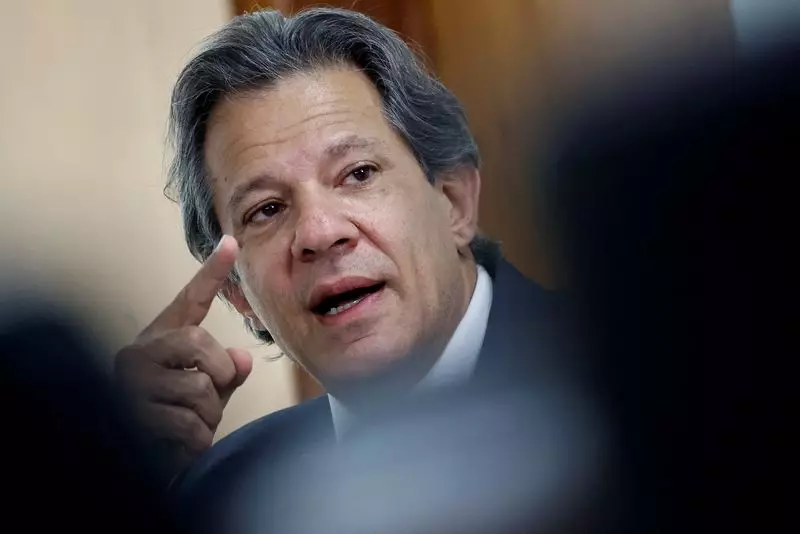The financial landscape in Brazil has recently been marked by significant uncertainty, primarily stemming from the government’s postponed fiscal policy announcements. Finance Minister Fernando Haddad’s abrupt cancellation of his trip to Europe showcases the pressures faced by the Brazilian government as it grapples with investor expectations for spending-cut measures that were previously promised. The decision, made at the behest of President Luiz Inacio Lula da Silva, underscores the administration’s prioritization of domestic issues at a critical time for the country’s economy.
Recent market reactions signal a growing anxiety among investors about Brazil’s fiscal direction. The U.S. dollar surged to its highest closing price against the Brazilian real since May 2020, reflecting a lack of confidence in the government’s ability to implement necessary fiscal reforms. This situation is further exacerbated by the upcoming U.S. presidential elections, which often create additional market volatility. Investors typically seek clarity and stability, and the absence of clear communication regarding Brazil’s fiscal strategy leads to increased speculation and uncertainty within the market.
Importance of Timely Fiscal Policies
The expectation of detailed fiscal measures is not merely a matter of politeness in governmental communications; it is a critical component of economic stability. Investors rely on the government for adherence to a fiscal timeline, especially after municipal elections which often shift political priorities. With government officials indicating that they would reveal such measures following last weekend’s elections, the ambiguity surrounding their timeline raises concerns about the administration’s capacity to enact change. Market trust hinges on expectations being met, and delays can erode confidence rapidly.
The Brazilian government’s communication strategy has come under scrutiny, especially as it pertains to fiscal policies. Effective communication between the government and market participants is paramount for maintaining investor confidence. The reluctance to provide a concrete timeline for fiscal measures risks alienating investors, who may then seek to diversify their investments elsewhere. This scenario is particularly concerning for Brazil, which relies on foreign investment to foster economic growth and stability. Better transparency could mitigate these risks and bolster stakeholder engagement.
While the Brazilian government grapples with internal dynamics and external pressures, the cancellation of Minister Haddad’s trip to Europe highlights a broader narrative of market apprehension regarding fiscal discipline. As the administration seeks to manage domestic priorities, the timely introduction of spending-cut measures will be vital in restoring confidence among investors. The delicate balance between governance and communication must be navigated deftly to ensure future economic stability in Brazil. The actions taken in the coming weeks will likely have lasting implications for the country’s fiscal health and investor relations.

